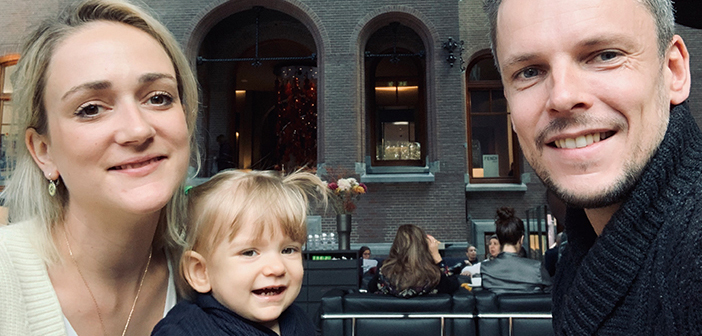“You must find more A negative blood for tomorrow.”
This was the stark message given to Marie and Paul Klein Bog as their daughter Julia lay critically ill in hospital. Only days before they had been celebrating her first birthday, with no idea of the nightmare that was about to confront them. We talked to them about how “Guardian Angels” and social media saved their daughter’s life, and what every parent in Beijing needs to learn from their horrific experience.
Julia was “made in China”, Marie says proudly. Marie, who is French, met Paul from the Netherlands when they were exchange students at Peking University. They settled in the city and married in 2016. Julia Rose was born the following year.
The crisis began one Thursday night, four days after her first birthday party. Julia began vomiting and was sick all night.
“Even a drop of water was not staying in,” Marie says. “So on the Friday morning, I decided to bring Julia to Beijing United Family Hospital (BJU) for a check-up, because she was still vomiting. After a quick consultation, she was given some medication, and we were cleared to go home.
“At home, she had a bottle of milk and went straight to sleep for her afternoon nap. She seemed abnormally tired, but I still thought she was alright. Later in the afternoon however after waking up she started vomiting again, showing a brownish color this time, together with severe diarrhea. I called my husband immediately and we took her back to BJU because this time we thought something was definitely wrong.”
At the hospital, Julia was given medication to stop the vomiting and put on a drip to rehydrate. Later that evening, she seemed to have recovered and was discharged again.
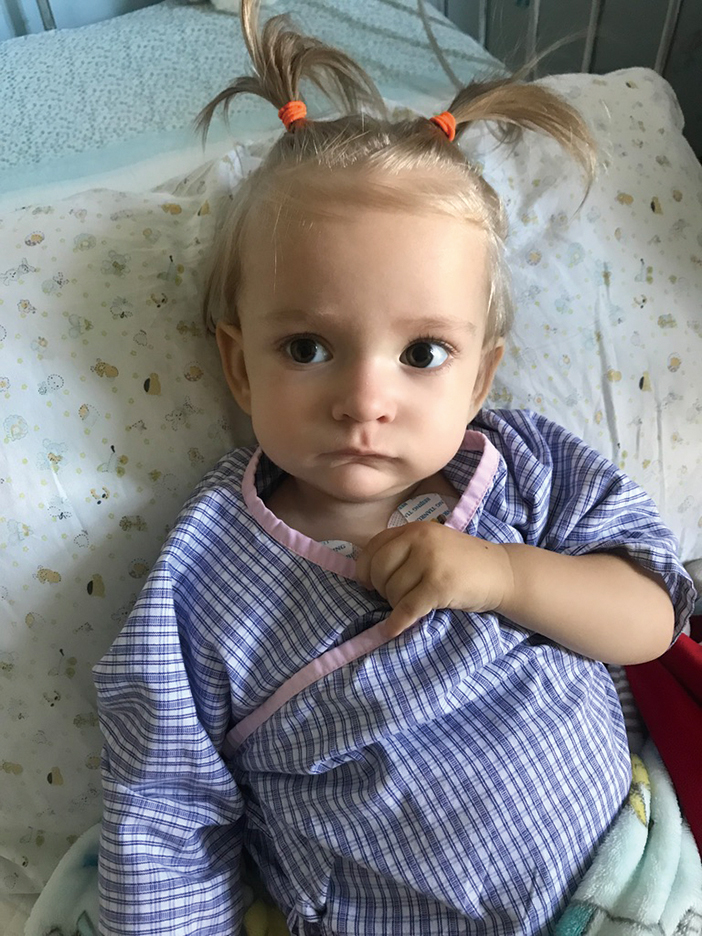
“However, as we were walking through the corridor on our way out, Julia started vomiting again, this time with a greenish color – very scary,” Marie says. “Julia was admitted again immediately and brought back to her room. BJU then called for a pediatric surgeon to come in, who asked to do an ultrasound of her abdomen, which showed a ‘mass’ of some kind.
“The doctor finally arrived near 2am, and checked Julia’s status and ultrasound results. While we were talking to the doctor I turned around and saw Julia shaking – she had gone into an epileptic seizure. The seizure lasted for just under one minute, where she stopped breathing for 50 seconds.”
These were the longest seconds of their lives, Marie tells us.
“We could see the doctors and nurses went into a panic and started running up and down the corridor, entering and leaving the room, giving emergency treatment to Julia and trying their best to save her. They finally were able to bring back her breathing and stabilize her situation.”
But the nightmare was just beginning.
“After a night without sleep, we continued doing blood tests all through the next day. With every result that came out, Julia’s condition was worsening. Her red blood cell count was dropping, her white blood cells went extremely high and at the end of the day, she started showing signs of kidney failure. What was extremely challenging for us during this time is that the doctors at BJU didn’t speak English well, and we had a hard time getting a conclusive diagnosis on our daughter’s condition. In broken English, we were told on the Saturday night that Julia was having kidney failure. She had at this time turned anemic, had stopped producing urine or stool and had become bloated all over her body.
“Only then was she diagnosed with hemolytic uremic syndrome (HUS). This is a condition caused by the abnormal destruction of red blood cells. The damaged red blood cells clog the filtering system in the kidneys, which can lead to life-threatening kidney failure. Julia was showing all the symptoms and BJU advised us to make an emergency hospital transfer because she required more intensive care as well as dialysis, something BJU does not have the facilities for. HUS is caused by the bacteria E.coli, which is typically spread by eating contaminated food. However, to this day we still don’t know the origin.
“By emergency ambulance, Julia got transferred into the PICU (pediatrician intensive care unit) at BaYi Children’s Hospital, affiliated to the Beijing Military Hospital. My husband took Julia to the doors of the PICU and there had to hand her over to the medical team. Its PICU is a closed unit, meaning we were not allowed to see her once we admitted her into their care. After a grueling interview with the doctor, in which we had to explain in detail what may have caused her condition, they started intensive treatment consisting of blood transfusion and dialysis. This happened early Saturday morning. This was when Julia’s doctor asked us to recruit blood donors, as her blood type A negative is extremely rare in China, and they were low on supply.”
Because Julia had never been ill before, the Klein Bogs had no idea that their daughter had an unusual blood type. Although A type blood is relatively common, the Rhesus negative factor is so uncommon here that it’s known as “Panda blood,” after China’s most famous endangered species. And communication difficulties made an already harrowing situation even worse.
“The doctor who did the intake interview for Julia at the PICU at first was quite cold and intimidating. Especially after having had to hand over Julia and the doors being closed, this was extremely challenging. What we found out later is that this specific unit is where they handle the most serious cases, and this was, in fact, a trauma ICU, which is why the unit is closed, because their approach is very much focused on the emergency rescue of the admitted children. It was hard for us therefore to get a clear understanding of the situation, as communication with parents is limited.”
Faced with the challenge of finding blood donors for their daughter, the Klein Bogs didn’t know where to turn.
“They simply told us ‘you must find more A negative blood for tomorrow,’ which was very scary. We didn’t know how to contact the blood bank, where it was, or what the procedure was. It turned out we had to recruit people to come directly to a particular building at the hospital where blood could be taken. This seems to be a specific issue for the military hospital, as they are not in direct connection with Beijing’s central blood bank like the other public hospitals are.”
Marie describes this situation as “crazy”. Fortunately, however, Beijing’s international community came to the rescue.
“It started with a phone call I made on Sunday afternoon to my best friend Mathilde, who lives in Wuhan, explaining our situation and that we needed blood. She told me she had a well-connected friend in Beijing who maybe could help. This friend put me in touch with Marianne, who started a whole community on WeChat to find A- donors. Our other very good friends who were by our side in Beijing, Bibiana, Natasha, and Corentin, joined forces together with Marianne and helped to coordinate the WeChat groups to recruit donors. The way that the community rallied for our daughter was simply unbelievable. A negative is much more common among foreigners, which is why we needed the help of the expat community.
“My husband and I at this time were in a state of shock, and therefore relied completely on our friends to organize and coordinate the donation sessions: sending maps on WeChat, checking people’s blood type, informing people about the donation procedure, and after people came to give blood, offering water and snacks to help them recoup. This group, that we called Julia’s ‘Guardian Angels,’ have been our biggest support during these trying times, by helping us stay distracted, helping with language obstacles in communication with doctors, or simply offering a place to sleep, because sleeping at home was too difficult. Having a strong community of friends you can rely on during these times is extremely important, as you realize you are very much in a strange country when things go bad.”
We ask Marie what other parents can learn from her experience.
“Have a plan ready for when the worst happens,” she says. “An international hospital like BJU is a good start, and most of the time they will be able to deal with minor incidents or illnesses. But have some understanding of what the best Chinese hospitals are in town. Make sure you have insurance which is able to cover medical costs to Chinese public hospitals through a local agent – direct billing does not exist in the Chinese public healthcare system. Have someone by your side who is fluent in Chinese for any conversations with doctors; this will help to take the edge off as they are quite harsh in their communication, especially when trying to speak English.
“And in the end, listen to your kid. When something out of the ordinary is going on and you have a weird feeling, take them to see a doctor immediately. As a parent, you know when things are not right.”
Julia is now recovering well, and Marie is full of gratitude to all concerned.
“We would like to thank Doctor Yu Bang at Bayi Hospital, who with his medical team saved Julia, by giving her the emergency rescue that she needed. The skill and expertise of the Bayi PICU is world class; however they could work on patient and parent communication, which seems to be a bigger priority in the medical system in Holland (where we are now) and the West.
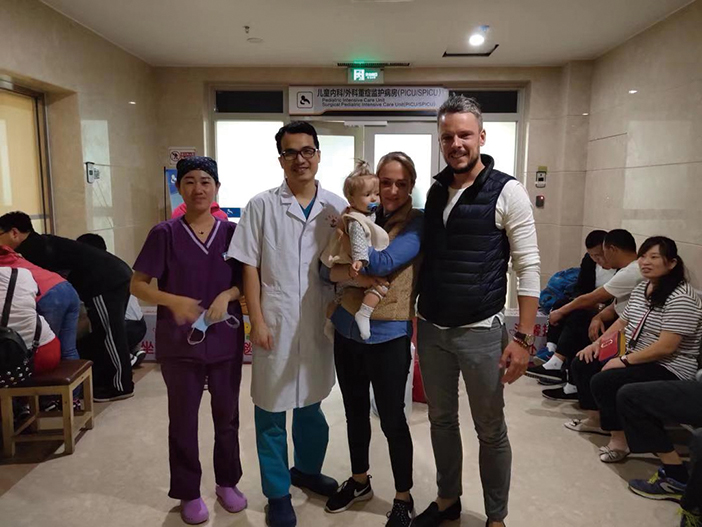
“Next to the medical care our daughter received, it has really been the tremendous support of our relatives and close community of friends that pulled us through as a family. We are indebted to Julia’s donors forever, they are real heroes. Julia is also now a superhero as she has had new blood from France, the US, Ukraine, Brazil, China (one Chinese A negative donor came!), Germany, Canada, Russia…”
Thanks to all these people, the story has a happy ending.
“We are now in Holland for follow-up care,” Marie tells us. “Julia is doing very well and has shown great resilience throughout the whole process. She is a happy little girl again, and we can focus on her having a normal healthy life.”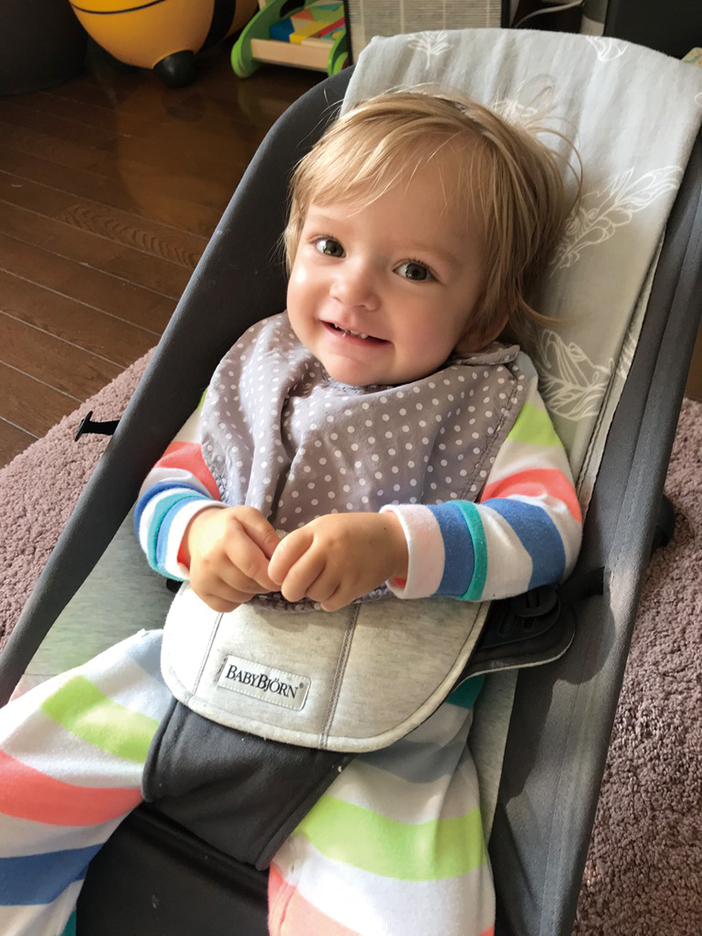
Whether or not you have “panda blood”, Beijing hospitals always need blood. You can donate blood in Beijing at the Red Cross Blood Center, on the North Third Ring Road, near Anhuaqiao subway station on Line 8. Or you can join a community of blood donors by searching for Bloodline Beijing on WeChat.
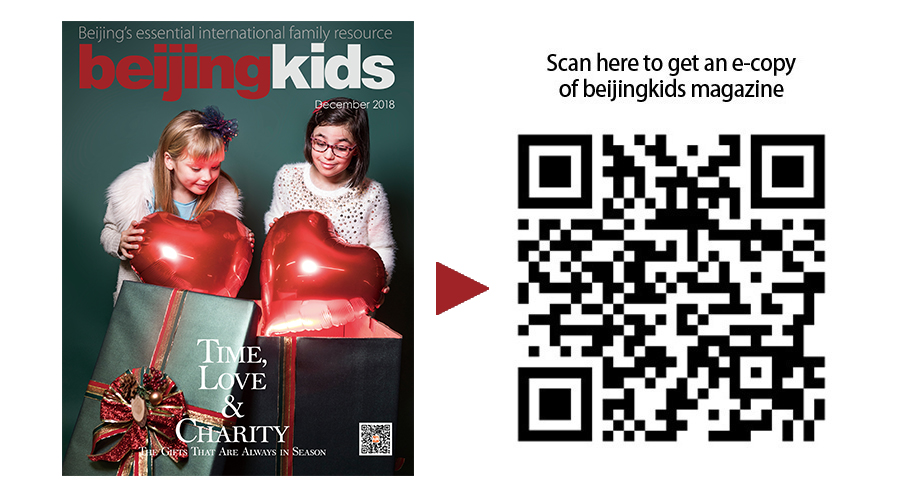
This article first appeared in the beijingkids December 2018 Charity and Goodwill issue.
Photos: Courtesy of Marie and Paul Klein Bog

